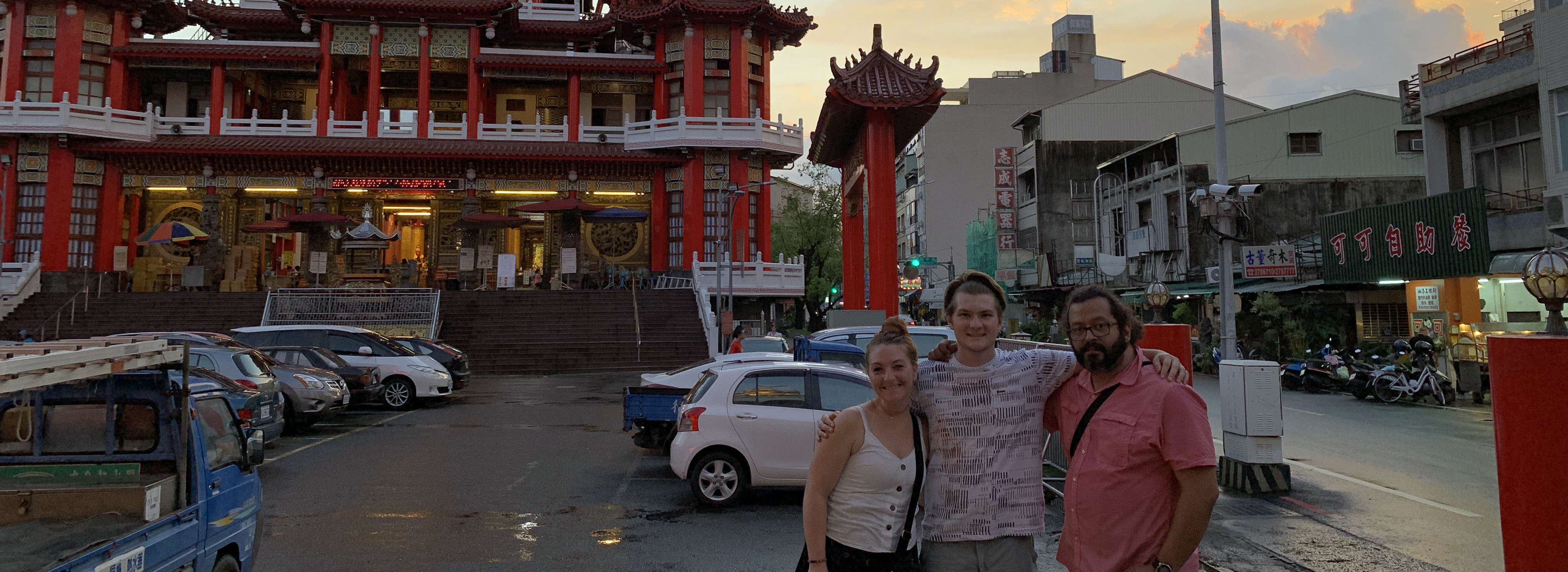Study Away to Taiwan in 2024
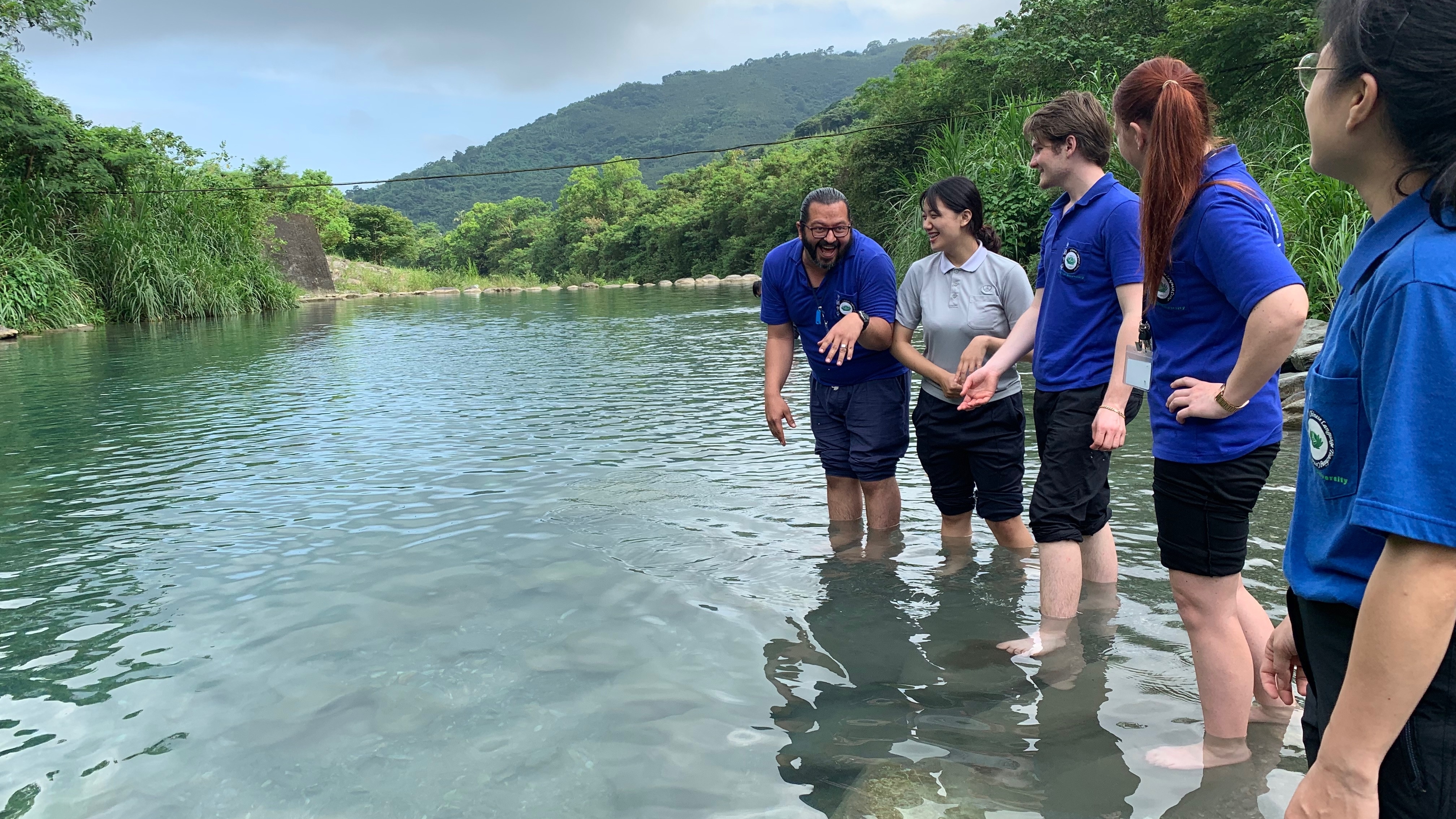
UNI-460 ECCE: Global Experience: Taiwan
The course will run from approximately May 15th to June 2nd. The specific departure date will be determined based on costs of reasonable flights between Chicago and Taipei, and could be any date between May 15th and May 18th. Students will sign a waiver agreeing to return to Chicago on their own (the instructor will see you off at the airport in Taipei on June 2nd, but will not return on the flight with the students)
All students will experience:
- A few days in Taipei after arrival in Taiwan
- A couple days in Tainan, the historic cultural capital of Taiwan
- Possibly a homestay for a couple nights with a Taiwanese household
- Meetings with Taiwanese university students, probably at Shih Chien University and National Taiwan Normal University.
- Visits to key cultural sites in Taipei (Palace Museum, etc.)
- Discussions of Taiwanese novels, films, culture, history, and society
- An excursion to a national park or national scenic recreation area such as Ali Shan.
- A day or two in smaller cities or towns on Taiwan’s western side.
- The two assigned books are Taiwan’s Struggle: Voices of the Taiwanese (2014), edited by Shyu-Tu Lee & Jack F. Williams (9781442272507 softcover or 9781442221420 hardcover) and Faraway: A Novel (2021) by Lo, Yi-Chin, translated by Jeremy Tiang (9780231193955).
- The two assigned films are Panay (2015), directed by Cheng Yu-Chieh and Lekai Sumi Cilangasan and Little Big Women (2020) directed by Joseph Chen-Chieh Hsu.
- Class discussion meetings most days that we are in Taiwan.
- Writing a reflective learning journal and responding to prompts while writing this journal.
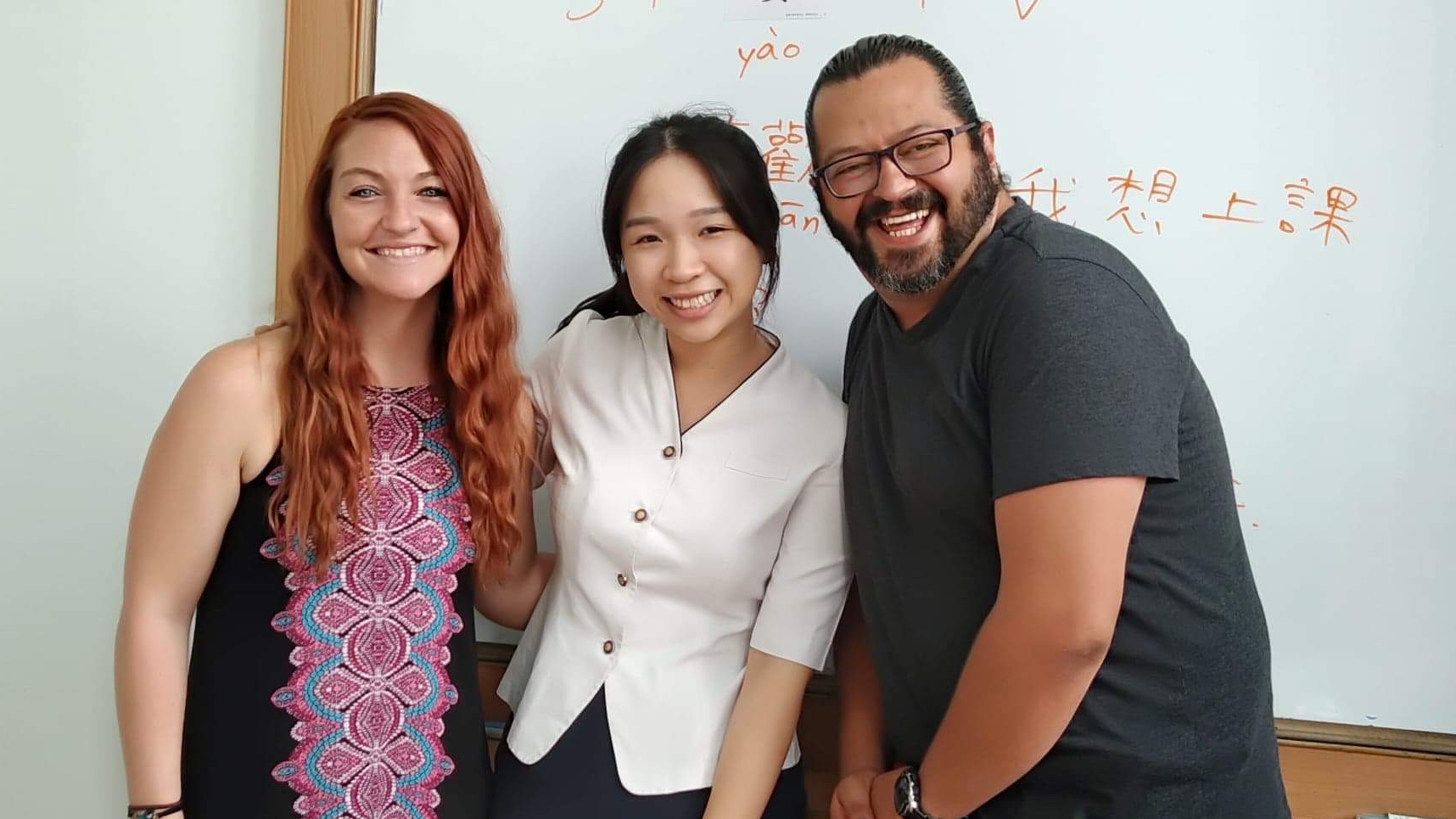
The class requires students to read two books, a novel and a collection of essays about recent Taiwan development. There are many other books recommended to students as good sources to read before going to Taiwan:
- Taiwan: A New History (2021) edited by Murray A. Rubinstein (978-0765614957)
- Two Trees Make a Forest (2000) by Jessica J. Lee (978-1646220007)
- Lord of Formosa (2018) by Joyce Bergvelt (978-1788691390)
- Green Island (2017) by Shawna Yang Ryan (978-1101872369)
- Remains of Life (2017) by Wu He (978-0231166010)
- The Stolen Bicycle (2015) by Wu Ming-Yi (978-1925498554)
- Wild Child (1996 / 2002) by Chang Ta-Ch’un (978-0231120968)
- Notes of a Desolate Man (1994 / 2000) by Chu Tienwen (978-0231116091)
- Rose, Rose, I Love You (1984 / 2000) by Wang Chen-ho (978-0231112031)
- The Butcher’s Wife (1983 / 2002) by Li Ang (978-0720611618)
- White Sun War (2023) by Mick Ryan (978-1636242507)
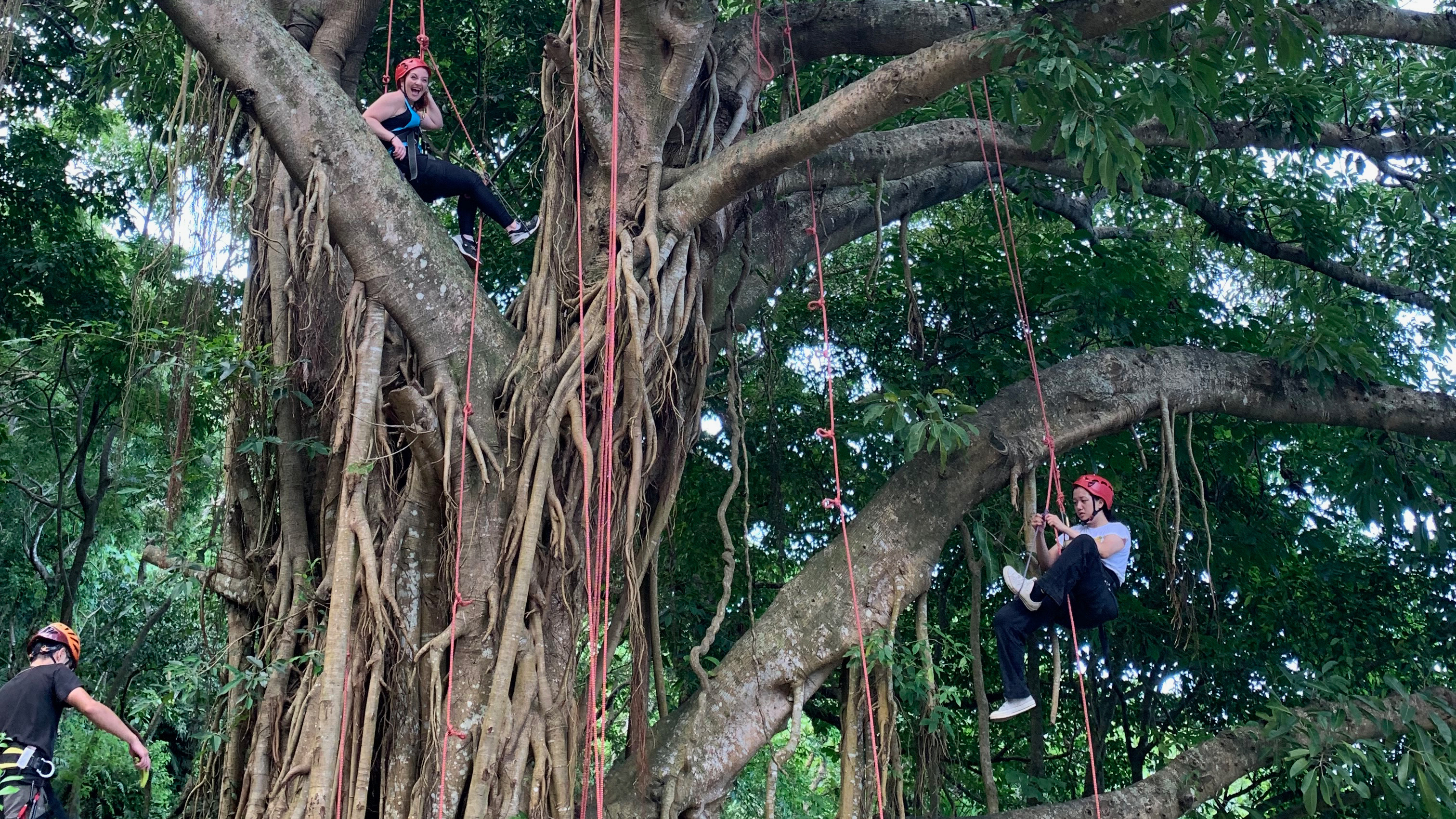
The travel fees for this course are about (but not more than) $2,400 for the two week study away, but about $1,450 of this is simply for the air fare between Chicago and Taipei. If you arrange your own flights to Taiwan and travel there independently, the program fee is likely to be less than $950. Remember, students also pay tuition for a summer course, and enrollment fees for attending classes in the summer. This course ends before most summer courses begin, and since the summer fees are almost the same for taking two or three classes as taking one class, you should consider that.
Remember, if you submit your application for this course before the first week of February and put in an application for a scholarship by the mid-February deadline, there is a high probability you will receive a grant to reduce the cost of your study. Grants are likely to be between $500 and $1,000. If you independently remain in Taiwan to study Chinese over the summer, and you intend to study Chinese for eight to ten weeks, you should apply in February for a Ministry of Education Huayu Enrichment Scholarship, which covers almost all the lodging and tuition expenses if you study at Tzu-Chi University in Hualien.
Food is not covered in your class travel fee. Food in Taiwan generally costs less than food in the USA. Your food expenses for the weeks you are living in Taiwan will probably be less than what you spend if you stay home in the USA.
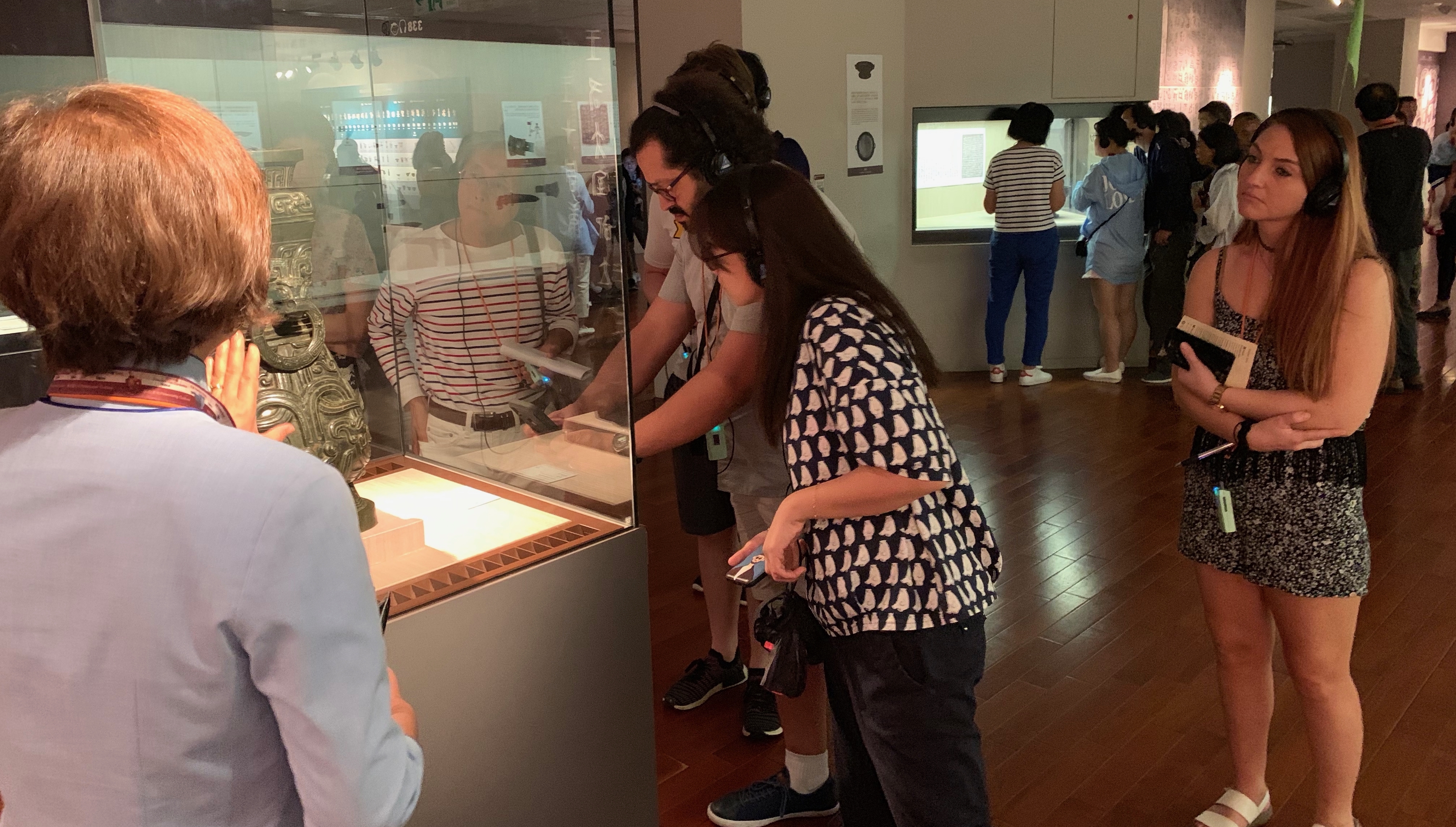
If you have no other obligations this summer, strongly consider combining this course with one of the other two short-term study-away courses in East Asia.
While the course is only a bit longer than two weeks in duration, one could easy go from Taiwan to Japan and China with the Ashikaga or Wanxiang study away programs offered in June (each starting less than seven days after this program concludes. It is also possible to independently arrange to study Chinese or Japanese for several weeks in Taiwan, Japan, or China while you are in East Asia. Tickets to get to Japan and Taiwan are expensive, and if you have the ability to stay longer in East Asia, and if you want to develop language skills in Japanese or Chinese, you should seriously consider making arrangements to study languages at a university, where lodging in dormitories over the summer is the least expensive option aside from couch surfing (the daily cost of staying in the dormitory at Tzu-Chi University if you study Chinese there works out to about $3 per night).
Although the course involves staying outside of Taipei for 4-6 nights, most of our time will be in Taipei, Taiwan, which is one of the safest cities in the world. Taiwanese people are known for being very hospitable and friendly toward foreign visitors, and it is easy and inexpensive to get around Taipei using mass transit, taxi, bike, or foot. Travel websites and experts consistently rate Taipei as one of the best cities to visit, and Taiwan itself offers students interesting history and culture combined with a delightful natural environment and lively urban centers.
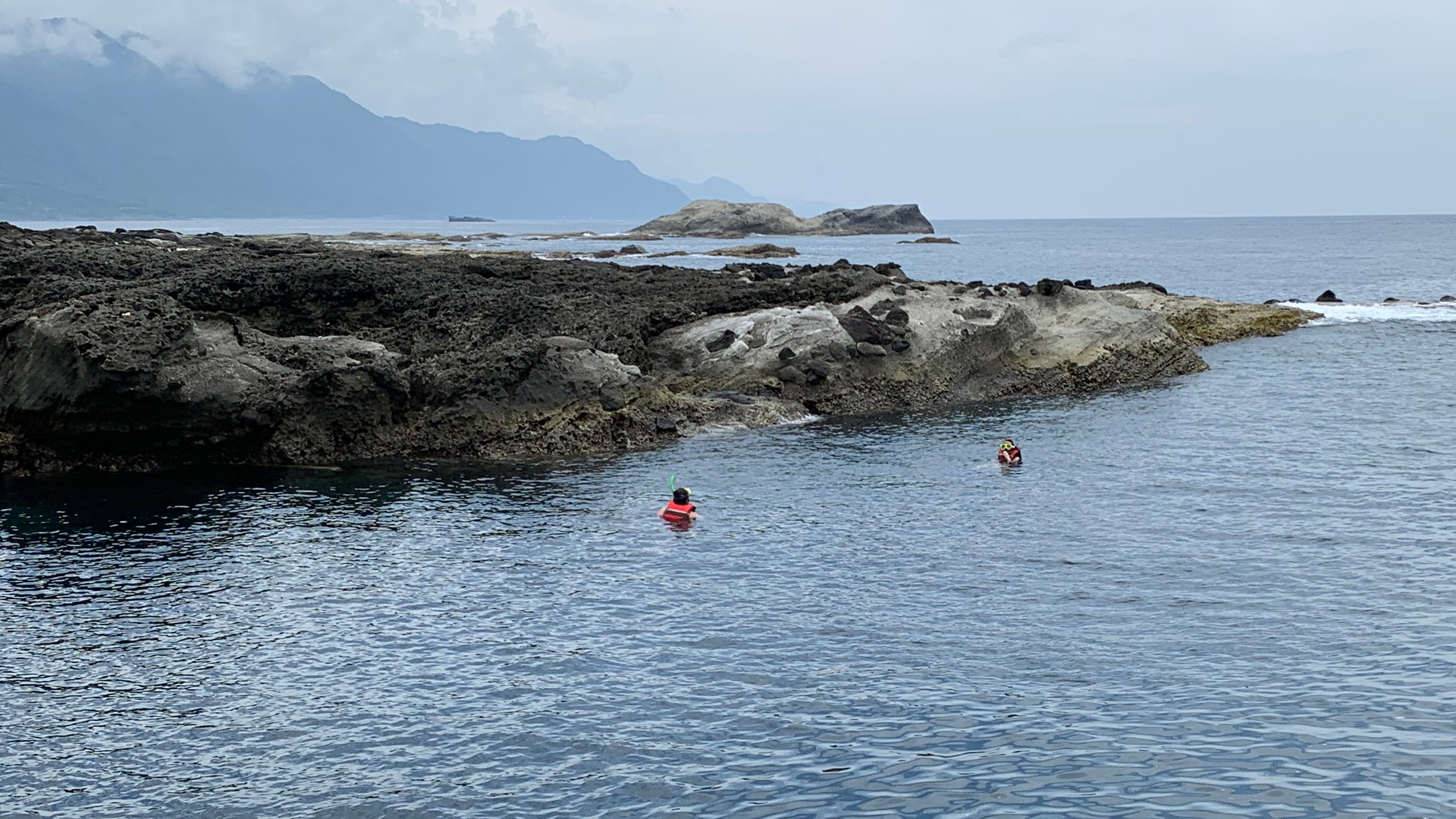
The course does have reading assignments, but the emphasis is on students going out into public and meeting people and engaging in conversations with Taiwanese. Students write a journal and discuss writing prompts or take part in self-directed or instructor-guided activities and excursions, reflecting on their experiences in their journals.
Taiwan is one of the safest countries in the world in terms of crime. Taiwanese have a well-earned reputation for friendliness and openness to foreign students and visitors to their country. Most young Taiwanese have intermediate skills in English, and many are fluent. While in Taipei, students will meet social work students at Shih-Chien University and Shi-Da University. It may be possible to arrange homestay visits for one or two nights where students will stay with Taiwanese hosts during the class.
| Date | Activity |
| Wednesday, the 15th of May | Flight from Chicago to Taipei. Check Skyscanner or flights.google to find least expensive schedule. Direct flight on Eva Air departs slightly after midnight, so check in on May 14th evening if we take that flight. |
| Thursday, the 16th of May | Arrive in Taipei. With a morning arrival, walking tour of some neighborhoods, parks, and gardens. With an evening arrival, straight to hotel or hostel for the night. |
| Friday, the 17th of May | Day in Taipei. Possibly meet with Taiwan University Students |
| Saturday, the 18th of May | Day in Taipei, possibly a homestay this evening. |
| Sunday, the 19th of May | Day in Taipei, possibly a day with a Taiwanese host family. |
| Monday, the 20th of May | Day trip from Taipei. Possibly visit Jiufen, or Yingge, or Pingxi, or Tamsui |
| Tuesday, the 21st of May | Day in Taipei, possibly visit the Palace Museum, and possibly visit another university to meet more Taiwan students. |
| Wednesday, the 22nd of May | Go to Tainan |
| Thursday, the 23rd of May | Day in Tainan. Visit National History Museum, and old Dutch fortress sites. |
| Friday, the 24th of May | Go to Chiayi, possible home stay |
| Saturday, the 25th of May | Day in Chiayi, possibly visit Southern Branch of National Palace Museum |
| Sunday, the 26th of May | Go to Ali Shan or other mountain area. |
| Monday, the 27th of May | Day in mountains. Learn about indigenous Formosan ethnic groups. |
| Tuesday, the 28th of May | Head north, stopping in smaller Taiwan village in a rural area (possibly Jiji, Shuili, Ershui, or Lukang) for the night. |
| Wednesday, the 29th of May | Return to Taipei |
| Thursday, the 30th of May | Day for student research or projects based in Taipei |
| Friday, the 31st of May | Second day for student research or projects based in Taipei |
| Saturday, the 1st of June | Free day in Taipei |
| Sunday, the 2nd of June | Return flight to Chicago from Taipei, or remain in Taiwan on your own, or continue to Japan or elsewhere on your own. |
- Final reflective papers and summaries of research or projects may be submitted by the end of June.
- Students may remain in Taiwan after June 2nd, and continue independently to travel or study Chinese in Taiwan. If studying Chinese until August 2nd, students should apply in February for scholarships from the Taiwan Ministry of Education, which ought to cost all tuition and study fees and all dormitory fees for two months (or longer).
- The Study Away course in Japan starts after this course concludes. That is an option worth considering. Tokyo is a four hour flight from Taipei.
- Students from other University of Illinois campuses can take this course. Scholarships available from your home campus can be used for this course. The process of enrolling in a UIS course (if you are a student at UIC or UIUC) is fairly straight-forward. You have a dean from your college sign a form, and then the registrar at UIS signs the form once the instructor (Eric Hadley-Ives, hadleyiv@uis.edu) gives approval, and then you will be able to register. Students from other universities in the United States should apply for admission to UIS. Once admitted, they should be able to enroll in this course like any other UIS student. Non-students who want to take this course can seek admission to UIS, and enroll as students at UIS after they are admitted. As summer enrollment fees are expensive (about the same as one course tuition), students should consider taking one or two additional summer courses (with will minimally increase fees); study away courses to China, Japan, the Dominican Republic, and the UK & Ireland are available, with start dates in June or July. Travel fees for the Japan study away course would be significantly reduced if you paid for independent travel from Taiwan to Tokyo instead of returning to Chicago and traveling with that class from Chicago less than a week after arriving from Taiwan.
